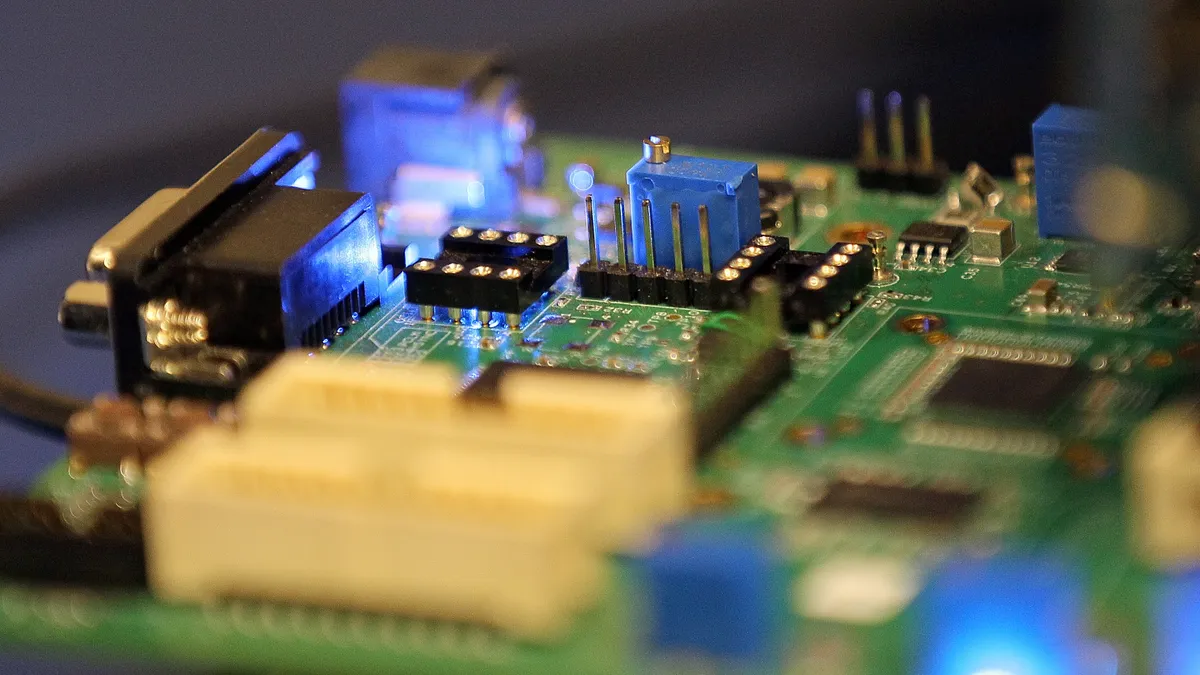Dive Brief:
- Motorola is paying a premium for semiconductors on the secondary market as supply constraints continue to affect electronics manufacturers, CFO Jason Winkler told analysts on a Q1 earnings call.
- The phone maker has built $120 million into its 2022 budget “for semiconductors that aren't available directly from the manufacturer,” Winkler said. Of that, $100 million is budgeted for the first half of the year, with the remaining $20 million for the second.
- To expedite shipping for the parts, Motorola has also shifted to air from ocean as its primary means of freight. CEO Gregory Brown said steep airfreight rates increased even further after Russia’s invasion of Ukraine, “and they remain high.”
Dive Insight:
By procuring chips from the secondary market and airfreighting them, Motorola succeeded in “getting some critical parts sooner than expected,” Brown said.
Motorola is spending more to procure adequate chip supply while devoting research to increase the number of substitutable parts in its products, Winkler said.
The company is also dedicating its limited supply of semiconductors to some of its most expensive products — including its public safety networks — to maximize profits.
"We overperformed in Q1, largely because we were able to get the supply and allocate it purposely to parts of the portfolio, like public safety, that are important to customers," Brown said. "They also happen to have slightly higher [average selling prices]."
But airfreight and the secondary market spending came at a cost: Motorola spent $50 million extra on semiconductors in Q1 and plans to incur the same cost in Q2, Winkler said.
In comparison, Motorola’s planned $120 million spending for inflated semiconductor costs this year is equal to the amount it spent in Q1 to acquire TETRA Ireland, the country’s national first responder digital radio service.
Increasing demand for chips, particularly from smartphone and auto companies, has given semiconductor manufacturers faith in yearslong capacity investments, some of which are worth billions of dollars.
While Motorola and others may be suffering from supply shortages, chip makers benefited from overwhelming demand in the past quarter. A key factor contributing to rising revenues for Taiwan Semiconductor Manufacturing Co. in Q1 was "customers' continuing need to ensure supply security," CEO C.C. Wei said on an earnings call.
As supply constraints continue, chip vendors have reassured AT&T's executives that the telecommunications giant will receive adequate supply for its products, AT&T CEO John Stankey said on a Q1 earnings call.
But the company has backup plans in place in case the ordered chips don’t arrive.
"We’ve done a lot of second order diligence on our equipment," Stankey said. "We’re not just taking their word for it."
This story was first published in our Procurement Weekly newsletter. Sign up here.















